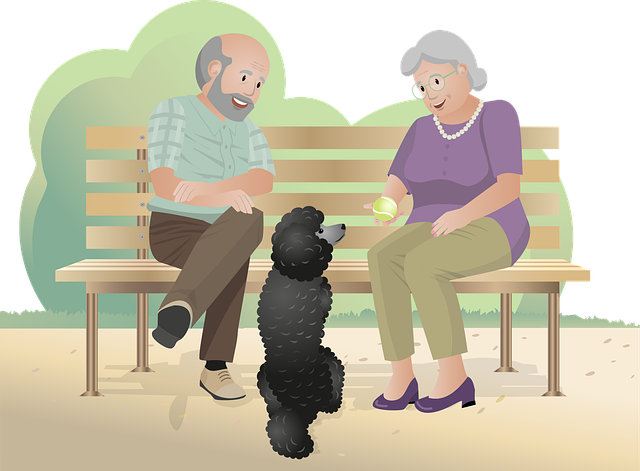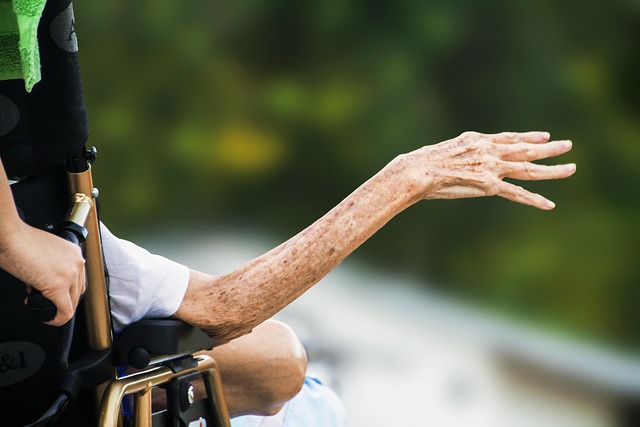Loneliness among the elderly, often exacerbated by social isolation and limited mobility, significantly impacts mental well-being, leading to issues like depression and cognitive decline. Elderly Companion Services offer a solution by providing tailored companionship, social interaction, and emotional support, addressing both social and cognitive needs of seniors. Through meaningful connection-building, these services pair elders with compatible companions engaged in activities that promote mental health, independence, and overall well-being, while professional evaluators ensure high-quality care.
“Elderly loneliness and mental health are critical issues that have gained significant attention in recent years. This article explores how elderly companion services can serve as a powerful solution, offering not just companionship but enhancing overall well-being. We delve into the profound impact of social isolation on seniors’ mental health and highlight the numerous benefits of having a dedicated companion. Additionally, we provide insights into matching these companions with elderly individuals to foster meaningful connections.”
- Understanding the Impact of Loneliness on Elderly Mental Health
- The Benefits of Companion Services for Seniors
- Creating Meaningful Connections: Matching Companions with Elderly Individuals
Understanding the Impact of Loneliness on Elderly Mental Health

Loneliness among the elderly is a growing concern in today’s society, with significant implications for mental well-being. As people age, they may experience a decline in social connections and interactions, leading to feelings of isolation and loneliness. This is particularly prevalent in those who live alone or have limited mobility, making it challenging for them to engage in social activities. Prolonged loneliness can have detrimental effects on mental health, contributing to depression, anxiety, and cognitive decline.
Elderly companion services play a crucial role in combating these issues by providing a sense of companionship and social interaction tailored to the unique needs of older adults. These services offer a friendly presence, engaging in conversations, sharing activities, and providing emotional support. By addressing loneliness head-on, elderly companion services contribute significantly to enhancing mental well-being, ensuring that seniors feel connected, valued, and supported in their daily lives.
The Benefits of Companion Services for Seniors

Elderly Companion Services offer a range of benefits that significantly contribute to the mental well-being of seniors. Firstly, they provide social interaction, which is crucial for combating loneliness and isolation, common issues among the elderly population. Regular visits from companions can fill voids left by declining mobility or the loss of family and friends, fostering a sense of belonging and purpose.
Additionally, these services enhance cognitive stimulation through engaging activities tailored to individual preferences. From light conversations to shared hobbies, such interactions keep minds active, potentially delaying the onset of age-related cognitive decline. Companions can also assist with daily tasks, ensuring seniors maintain independence while receiving much-needed support, thereby improving overall mental and emotional health.
Creating Meaningful Connections: Matching Companions with Elderly Individuals

Creating meaningful connections is at the heart of successful elderly companion services. It involves understanding the unique needs, interests, and personalities of each elderly individual to match them with compatible companions. This thoughtful pairing ensures that interactions are not just superficial but foster genuine bonds. Companions can engage in activities like reminiscing, sharing hobbies, or simply having thought-provoking conversations, all contributing to the mental well-being of the elders.
Matching methods should consider factors such as common interests, cultural backgrounds, and even physical abilities to ensure comfortable and enjoyable interactions. Professional evaluators often play a crucial role in this process, assessing both the needs of the elderly and the skills and personalities of potential companions, thereby enhancing the quality of care and companionship provided through these services.
Elderly Companion Services play a pivotal role in mitigating the profound impact of loneliness on seniors’ mental well-being. By fostering meaningful connections and providing social interaction, these services enrich the lives of elderly individuals, offering them a sense of purpose and belonging. Through careful matching based on interests, personalities, and care needs, companion services create a supportive environment that promotes emotional health, enhances quality of life, and contributes to the overall happiness and fulfillment of seniors in our communities.














